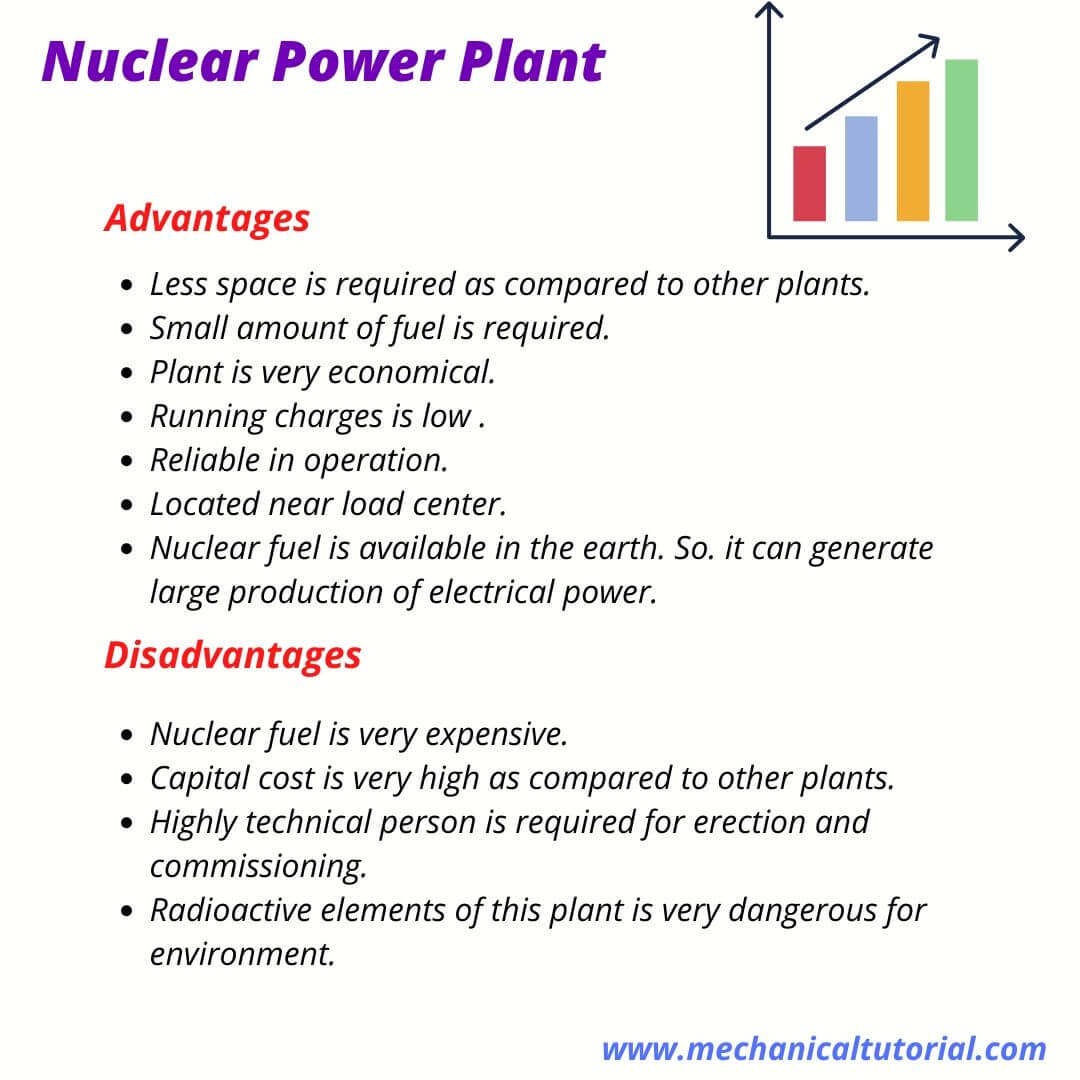
Nuclear Power Advantages And Disadvantages. Fuel is expensive and difficult to recover. The energy is produced via complex chemical processes in the nuclear power stations. Nuclear power produces a small volume of waste although that waste is radioactive - see below DISADVANTAGES. Less use of fossil fuelsmeans lowering.
/nuclear-power-how-it-works-pros-cons-impact-3306336_FINAL-14a12892b0894b6a815182e752d3698a.png)
Hence a large amount of electricity can be generated. 24 Disadvantages of Nuclear Power. They are designed to operate for longer stretches and refuel every 15 2 years. Nuclear power plants run 24 hours a day 7 days a week. Some reactors produce plutonium which can be used to make nuclear weapons. Less use of fossil fuelsmeans lowering.
The thermal energy from nuclear reactors may also be used to decarbonize other energy-intensive sectors such as transportation the largest contributor to carbon pollution.
The amount of fuel is quite small hence there is a considerable saving in the lost of fuel transportation storage etc. As it is radioactive it has to be disposed of in such a way as it will not pollute the environment. The thermal energy from nuclear reactors may also be used to decarbonize other energy-intensive sectors such as transportation the largest contributor to carbon pollution. It also creates radioactive waste that is lethal to the environment and hazardous to people. Because of its benefits and advantages nuclear power has been positioned as a feasible alternative source of energy. The impact of radiation to health and environment can be considered as one of major disadvantages of radiographic testing since a few seconds of being exposed to radiation can result in sever injuries.